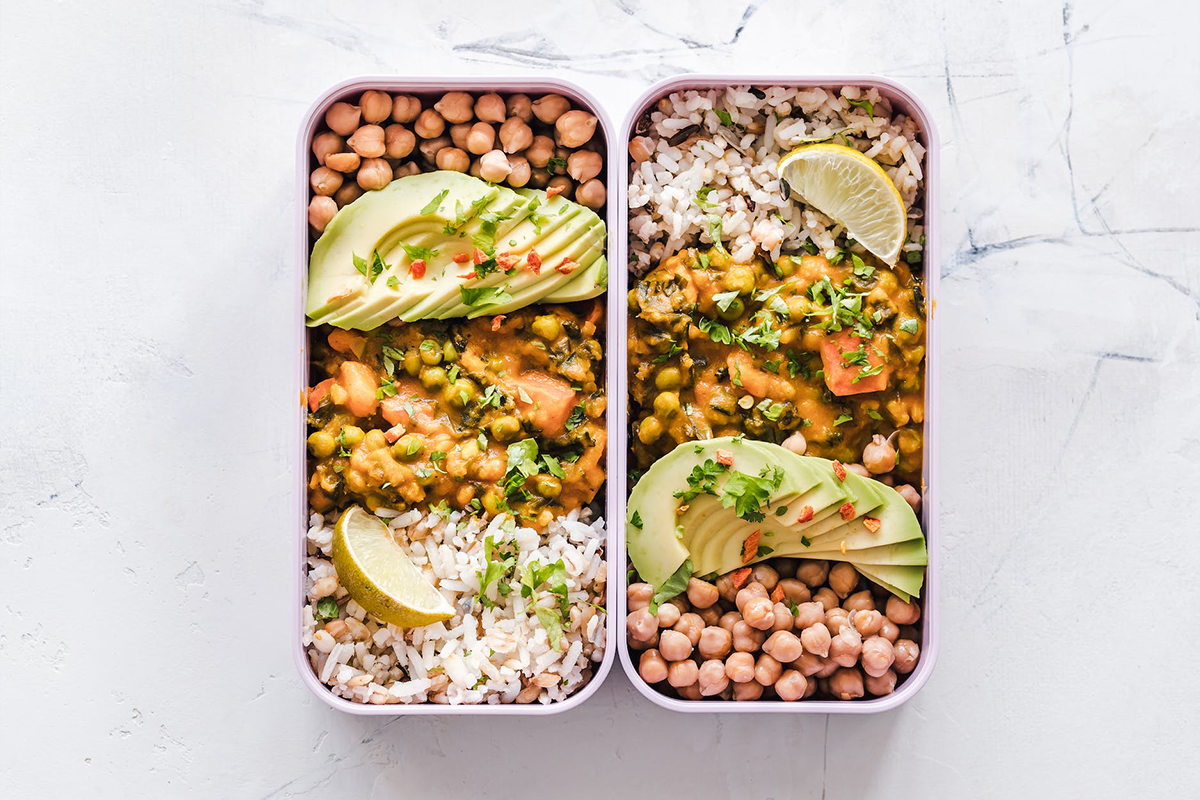If you're inviting a vegan over for dinner, you'll need to make sure your menu follows two basic rules. Foods of plant origin are accepted, but foods of animal origin are prohibited, including common ingredients like cheese, milk and honey (unlike the vegetarian diet).
Around 2% of French people follow a vegan diet. Their reasons for adopting this lifestyle vary. Some do it to improve their health. A plant-based diet could reduce the risk of certain diseases. Others give up meat because they don't want to harm animals or because they want to protect the environment.
If you've considered trying a vegan diet one day, you may be wondering if this vegan way of eating is right for you. Although not eating meat can have real benefits, it is not without some problems.
What foods are suitable for a vegan diet?
As part of a vegan diet , you can eat many plant-based foods, including:
- Fruits and vegetables
- legumes such as chickpeas, beans and lentils
- nuts and seeds
- Breads, rice and pasta
- dairy product substitutes
- Vegetal oils

Also, all Feed products. are vegan , lactose-free, gluten-free and GMO-free.
Discover our productsWhat foods should you avoid?
Vegans cannot therefore eat foods of animal origin, including the following foods:
- beef, pork, lamb and other red meats
- Chicken, duck and other poultry
- fish or shellfish such as crabs, clams and mussels
- Eggs
- Cheese, butter
- Milk, cream, ice cream and other dairy products
- Mayonnaise
- Honey
What are the benefits of a vegan diet?
Studies show that vegans have better heart health and a lower risk of suffering from certain diseases.
Those who give up meat are often less likely to become obese or suffer from heart disease, high cholesterol and high blood pressure.
Vegans are also less likely to suffer from diabetes and certain types of cancer, particularly cancers of the digestive tract, breast, ovaries and uterus in women, which improves their health.

It's possible that this vegan lifestyle could even help you live longer, especially if you also reduce your daily calorie intake.
Better weight control may be one of the reasons for all these health benefits. Vegans have a lower body mass index (BMI) than people who eat animal products.
Another benefit is good nutrition. The choice of vegan recipes based on fruits, vegetables, whole grains and nuts are staple foods of the vegan diet. These foods rich in fiber, vitamins, antioxidants and compounds help protect against diseases like diabetes and cancer.
What are the risks of a vegan diet?
A vegan diet is healthy overall, but avoiding animal proteins can deprive you of certain nutrients, such as protein, calcium, omega-3 fatty acids, zinc, vitamin B12, and vitamin D.
You need protein to fuel all of your body's chemical reactions.
Calcium strengthens your bones and teeth. Omega-3 fatty acids keep your cells healthy and protect your heart by protecting you against heart disease and stroke.
Taking these nutrients are especially important for the growing bodies of children and for pregnant women.
You can often find substitutes for most of these essential nutrients and replace them with plant-based foods, for example:
- Plant proteins: nuts, soy, beans, quinoa.
- Calcium: soy milk, fortified orange juice, tofu with calcium, broccoli, kale, almonds.
- Omega-3 fatty acids: flaxseed, vegetable oils, herbal supplements.
- Iron: tofu, soy nuts, spinach, peanut butter, enriched cereals.
One nutrient that can't be obtained solely from plant sources is vitamin B12, which your body uses to make red blood cells and DNA. You will only find B12 in animal products.
If you're following a vegan diet, you may need a supplement to make up for what you're not getting in your diet.
However, if you eat processed, high-fat foods and increase your portions, you will gain weight and risk suffering from the same health problems as a meat-based diet.
How to become vegan?
Are you interested in the idea of a vegan diet, but you don't know where to start? If you follow our advice, you can take the plunge and eliminate all poultry, meat, eggs and dairy products at once. You can also take a more gradual approach and increase the amount of fruits, vegetables and legumes you eat at each meal.
If eliminating all animal products from your diet seems overwhelming, try less strict nutrition. Some diets focus on plants, but leave room for other types of foods:
- Pescatarian: No meat or poultry, but you can still eat fish.
- Lacto-ovo-vegetarian: plant-based diet, plus dairy and eggs.
- Flexitarian: a plant-based diet that sometimes includes animal products.

In conclusion
Your doctor or a dietitian can help you choose the right foods when starting a vegan diet. Please note, it is very important to seek expert help if you have a long-term condition or are pregnant, to ensure that your new diet contains the right mix of nutrients.















